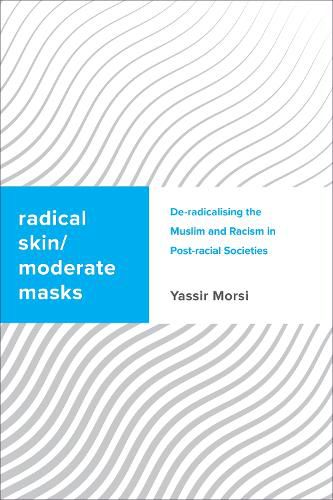Readings Newsletter
Become a Readings Member to make your shopping experience even easier.
Sign in or sign up for free!
You’re not far away from qualifying for FREE standard shipping within Australia
You’ve qualified for FREE standard shipping within Australia
The cart is loading…






Radical Skin, Moderate Masks explores a voice trapped by the War on Terror. How can a Muslim speak about politics? And, in what tone can they argue? In today’s climate can they talk back without being defined as a moderate or radical? And, what do the conditions put on their political choices reveal about liberalism and its deep and historical relationship with racism? This timely work looks at ongoing debates and how they call for Muslims to engage in a de-radicalisation of their voice and identities. The author takes his lessons from Fanon and uses them to make sense of his many readings of Said’s Orientalism. He reflects on the personal and scholarly difficulty of writing this very book. An autoethnography follows. It shows (rather than tells of) the felt demand to use a pleasing Apollonian liberalism. This approved language, however, erases a Muslim’s ability to talk about the Dionysian more Asiatic parts of their faith and politics.
$9.00 standard shipping within Australia
FREE standard shipping within Australia for orders over $100.00
Express & International shipping calculated at checkout
Radical Skin, Moderate Masks explores a voice trapped by the War on Terror. How can a Muslim speak about politics? And, in what tone can they argue? In today’s climate can they talk back without being defined as a moderate or radical? And, what do the conditions put on their political choices reveal about liberalism and its deep and historical relationship with racism? This timely work looks at ongoing debates and how they call for Muslims to engage in a de-radicalisation of their voice and identities. The author takes his lessons from Fanon and uses them to make sense of his many readings of Said’s Orientalism. He reflects on the personal and scholarly difficulty of writing this very book. An autoethnography follows. It shows (rather than tells of) the felt demand to use a pleasing Apollonian liberalism. This approved language, however, erases a Muslim’s ability to talk about the Dionysian more Asiatic parts of their faith and politics.